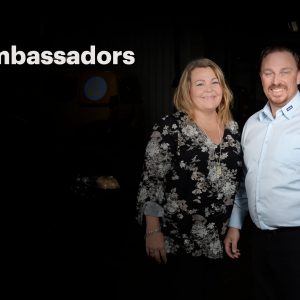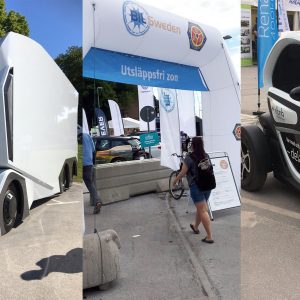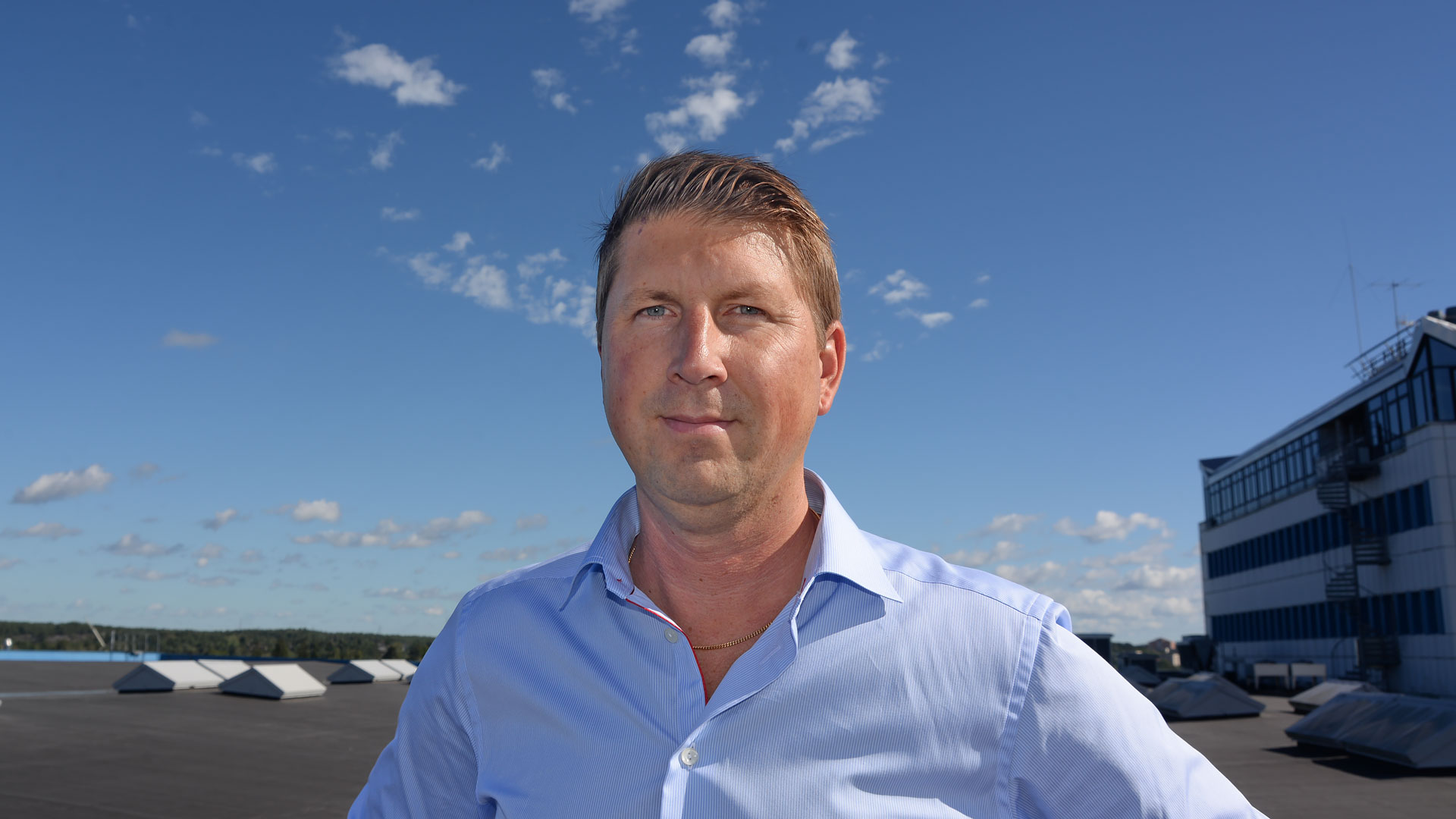
KG Knutsson’s digital journey gave a hallelujah moment in Brussels
A story of how a last minute request to participate in a panel discussion in Västerås led to KG Knutsson AB being hailed as a success story in the EU – and about how the clock is ticking for small Swedish companies.
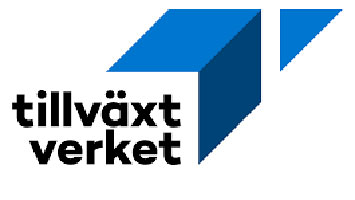
Tillväxtverket is a government agency under the Ministry of Enterprise and Innovation. The agency promotes economic growth in Sweden by increasing the competitiveness of companies. It works to strengthen the competitiveness by facilitating entrepreneurship and creating attractive environments for companies regionally.
It is a freezing Tuesday morning in February, and Jonas Andersson is sitting on a plane headed for Brussels. Jonas is Marketing Manager for Autokatalogen, KG Knutsson AB’s e-commerce site. He has with him a translated company presentation about KGK and a handful of figures related to how the company’s e-commerce site, Autokatalogen, works. Tillväxtverket (the Swedish Agency for Economic and Regional Growth), an agency tasked with strengthening the competitive power of Sweden’s trade and industry, has asked him to represent “the industry” at a workshop.
“I found myself wondering more than once what I was actually doing sitting on that plane,” says Jonas. “Recounting KGK’s digital history was nothing new to me, but I’d never done it in a context of this stature.”
The worry over Sweden’s companies’ digital future
But the story really began three months earlier, in November 2015. At a breakfast seminar held at Expectrum in Västerås, Business Sweden presented its report on how Swedish companies can win ground on the international market by using new technology. Business Sweden is owned by the Swedish Government and industry, and was created through a merger of Exportrådet (the Swedish Trade Council) and Invest Sweden.
“In simple terms, you can say that the report shows that small to medium-sized companies in Sweden are hampered when it comes to digitalisation, which impedes growth and the competitiveness of these companies on the international stage,” explains Jonas. “Other countries are making great strides and there is a worry that Sweden and the rest of the EU are struggling to keep up.”
Jonas was in attendance at the breakfast seminar and was invited to participate in the following discussion panel. His seat on the panel was somewhat down to chance in the first place. A friend of a friend at Business Sweden had asked whether Jonas would be able to come and explain how KGK had used technology to develop its business via Autokatalogen.
“They wanted to present companies that could give concrete examples showing how digitalisation had boosted their business, success stories, but they were having trouble finding people to take part. There were supposed to be three of us but in the end there were just two,” says Jonas.
Autokatalogen.se caught the interest of the government agencies

The panel discussion was led by Irene Ek, innovation policy analyst at the Swedish Government agency Tillväxtanalys (the Swedish Agency for Growth Policy Analysis). She is one of the foremost experts on service-based innovation in Europe, with a PhD in Management and a year at OECD on her CV. To clarify the distinction between the concepts: Tillväxtanalys furnishes the Ministry of Enterprise and Innovation with documentation for decision making, while Tillväxtverket serves as the Ministry’s decision-making chain and is intended to contribute to strengthening the competitive power of Sweden’s trade and industry through economic and knowledge-based means. Irene EK remembers Jonas well.
“He was able to demonstrate an example of exactly what we were looking for – how a company improves efficiency and sees increased sales thanks to implementing new technology. To stay relevant, it’s important to find new ways to deliver value by providing more information and fostering budding relationships. This has been made possible by digitalisation and is something that KGK has really grasped with two hands. Jonas could give the discussion a much greater degree of depth.”

Developing Autokatalogen.se since 2002
KGK has been a fixture in the automotive industry since 1946, when the company was founded by Knut-Göran Knutsson. Today, the company is owned by his son, Håkan. Autokatalogen.se is KGK’s e-commerce site, where the company handles around 90% of its business to business trade. From its more modest beginnings listing 100,000 items, the catalogue now boasts around 450,000, as a result of scalability. The majority of the listed goods are linked to specific vehicles; when the customer enters a vehicle’s registration number, only those spare parts and accessories suitable for that vehicle are displayed. The customers are also able to make complaints and manage returns via the site, and KGK’s sales force all have their CRM integrated with each customer number in the catalogue. The company was an early adopter in its industry and launched Autokatalogen.se in 2002, which is perhaps evident in the fact that some time has passed since the site was reinvigorated with a new design. But “under the bonnet,” development has never stopped.

One person who sat in the audience in Västerås and also thought that Jonas had provided a good explanation with clear examples was Maria Evertsson. She is project manager and national contact person for a large EU programme known as COSME – Competitiveness of Small and Medium-sized Enterprises – at Tillväxtverket. The report he presented was precisely in line with Tillväxtverket’s assignment for the EU.
“This guy – yes!’ I thought. “If he can get the penny to drop for me then he can do the same for others. I’ll keep him in mind and contact him when the right project turns up,” remembers Maria Evertsson. “And the right project did turn up in February, when we organised a workshop in Brussels.”
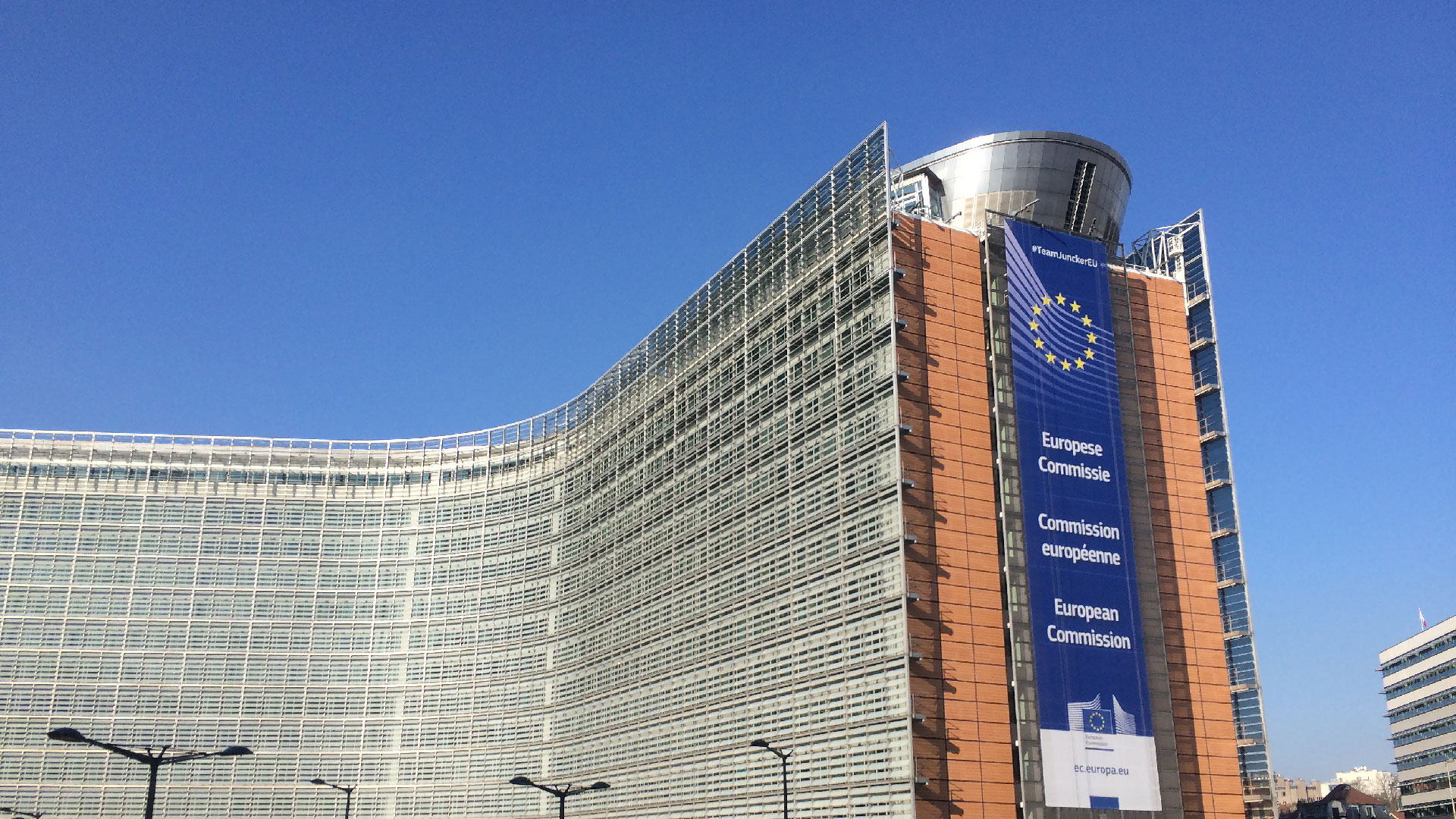
The Brussels presentation
At last, Jonas Andersson takes his place before an audience of delegates from EU member states. Representatives of government agencies and trade organisations fill the seats set up along the long tables. Through the window he sees a snow-free, almost autumnal park. He presents his real-life examples to the assorted civil servants and state officials, his company’s success story. He relates the history of the business and Autokatalogen’s modest beginnings. About the customers’ hesitation to place orders digitally.
From more or less zero digital administration, KGK has in less than 20 years migrated almost all of its business to Autokatalogen. It has not been plain sailing and a combination of carrot and stick has been needed to make progress, for both customers and suppliers. Today, customers can not only see what KGK has in stock, but even how many items the suppliers have available from their warehouses in, for example, Germany.
“When I explained that, it was something of a hallelujah moment for the talk,” smiles Jonas. “They could scarcely believe their ears and suddenly questions started pouring in from all directions – it seemed like they would never end! I had to skip lunch and get by on a yoghurt and a couple of grapes!”
Maria Evertsson confirms Jonas’ version of events.
“People were very interested in what he had to say, and we got a lot of praise for bringing in these companies and concrete examples to the workshop. Without these sorts of additions it’s often just us bureaucrats making up the discussion, and that creates a certain distance from the subject. We lack the insider knowledge that is so important when talking about enterprise. Jonas could demonstrate that digitalisation had not only affected his company, but also a range of other parties the company had been in contact with.”
The workshop in Brussels begins on group work. Jonas is now one of the audience instead of standing before it. The ideas born during these discussions may leave their mark in the report that Tillväxtverket’s Director-general, Gunilla Nordlöf, is due to present before the end of the year. The hope is that some concrete measures can be laid out for how the member states can promote digitalisation. Eva Lindström, Under-Secretary and Minister of Enterprise and Innovation, has stated that Sweden has two years to implement digitalisation if it is not to fall by the wayside.
Avslutar veckan med en inspirerande walk & talk med Jonas Andersson på KG Knutsson: Digitalisering är ett måste! pic.twitter.com/7ELpAhhzwY
— Gunilla Nordlöf (@NordlofG) April 22, 2016
On the plane home, Jonas Andersson digests his experiences from an intensive couple of days.
“These are not inconsequential issues being discussed. I’m glad I could contribute with an example from the ‘real world’. It was a bit of a fortuitous development that meant I could represent my company in that EU context, I’m very grateful to Tillväxtverket for giving me the chance. At the same time, it’s proof of the good work we do, and that I am part of the team pointing us in the right direction. If nothing else, it was the direction of Brussels!”
- Your business will only require small investments to achieve growth when everything is in place in your digital platform.
- Go from order taker to business developer. All the time you used to spend on the administration of a transaction can now be spent on helping your customer to sell its products.
- You gather information on your customers’ purchasing behaviour. Stop acting on gut feeling and base your work on the facts instead.
- Skills development. A change in how you manage your business gives your staff the chance to develop.
- The future demands it. Tomorrow’s partners will potentially not want to do business at all unless you are digital.
- Set the same requirements for all suppliers. The fewer exceptions you have to make, the more streamlined your processes become.

